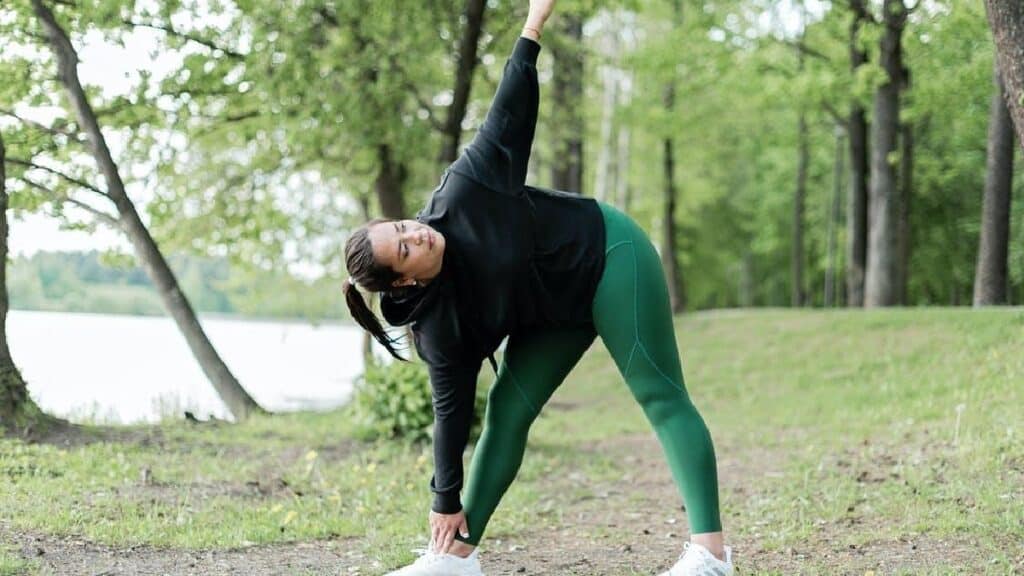
Healthy living is indispensable to ensure a healthy body. While we follow healthy practices to prevent chronic illnesses and diseases, we must also look after other essential physical needs. Your body is made up of various muscles and bones. The bones provide structural support, protect vital organs, and help in movement.
Likewise, the muscles support bones, pump blood, and aid breathing. As you age, the musculoskeletal system tends to become weaker, affecting your entire functioning. But a healthy lifestyle tends to make aging less difficult. When you follow a healthy routine, you ultimately improve your muscular endurance and musculoskeletal system.
Did you know that having strong muscles and bones aids in quick recovery from illnesses? But what can you do to keep them healthy? It’s simple. The age between 30s to 50s is the best age to change any bad habits harming your body. It’s the age when you can adopt healthy ways to achieve a strong body. And, of course, age gracefully. Fortunately, various dietary and lifestyle choices can contribute to strong bones.
Check out the following list to start living healthy.
Check for ailments first
Before starting your journey to living a healthy life, you need to conduct different tests to check for illnesses or deficiencies. Nowadays, muscle testing is becoming a widely popular testing technique. Based on the principles of biomagnetic energy, experts can unearth the reasons behind any physical or mental ailment facing people.
It can prove dangerous to indulge in any physical activity or diet if you’re unaware of the problems within your body. So, with proper testing, you can determine if you’ve any physical or mental issues. Eventually, it’ll become easier for you to cater to your health issues and needs once you know about them.
1. Stay hydrated
Since our body comprises mainly water, staying hydrated aids in the efficient functioning of all physiological systems. Water allows our bones and muscles to work efficiently. What’s more, sufficient water intake aids in the lubrication of joints. Joint lubrication and bone density are essential variables in reducing fractures and osteoporosis.
Your bones are continuously regenerating cells to replace those lost due to aging. The amount of water you drink impacts how well your bones perform. It offers vital electrolytes for muscle strength and control. So, it’s imperative to drink plenty of water to keep the bones hydrated.
2. Eat Healthily
Our bodies are greatly influenced by what we eat. Whatever you eat, ensure that it benefits your muscles and bones. Your diet should include all the necessary vitamins, calcium, and minerals your bones require. So, add these items to your everyday diet:
- Vegetables: Vegetables contain vitamin C, which is required for the development of bone cells. Onions, for example, contribute to higher bone density.
- Dairy products: Calcium is the most crucial mineral for our bones. And thankfully, the best source of calcium is dairy products. Milk and other dairy products help slow the pace of bone loss while also strengthening muscles.
- Meat: Protein in meat assists with the growth of muscular mass. It also helps with iron absorption and lessens the risk of fractures.
3. Strength training exercises
Strength training exercises are beneficial for people who have lower extremity joint deficiencies. People suffering from these conditions have hip or knee arthritis and can hardly undertake weight-bearing activities. So, strength training helps build bone density while ensuring proper growth. It also lowers inflammation and bone turnover. When you don’t do anything to replace the lean muscle you’ve lost over time, your body fat percentage rises.
Strength training exercises fasten the metabolism to burn fats. Resultantly, it helps manage or lose weight. There are many options at home and in the gym, including resistance tubing, free weights, cable suspension training, and weight machines that you can try.
4. Take Vitamins
Vitamins are critical to the development of muscles and bones. They help in building immunity to fight against diseases. They work on a cellular level to help with oxidative stress reduction, membrane repair, and collagen production. Some of the benefits of vitamins are as follows:
- Vitamin A: Provides structural support to muscles. It regulates the process of protein synthesis.
- Vitamin C: It is necessary for the synthesis of collagen. Collagen is a protein found in bones, skin, and muscles. Vitamin C also works as an oxidant to prevent your muscles from oxidative stress.
- Vitamin D: Our muscles and bones require Vitamin D to work properly. The deficiency of Vitamin D causes proximal weakness and loss of muscle mass. It also increases your chances of falling and injuries.
- Vitamin B12: It aids in producing red blood cells, which are in charge of transporting oxygen to the muscles. It also promotes effective brain-muscle connection, which affects muscle growth and coordination.
5. Say ‘no’ to alcohol and smoking
Tobacco and alcohol use leads to loss of bone mineral density. Excessive usage of both can result in osteoporosis. The bone loss might go unnoticed for years before a fracture occurs if osteoporosis is left untreated. Nicotine prevents the production of bone-forming cells (osteoblasts), resulting in a decrease in bone formation. Similarly, smoking accelerates the breakdown of estrogen in the body. Both women and men must create and maintain a healthy skeleton. So, consider enrolling in a smoking cessation program to quit smoking. Also, to give up on alcohol, the rule of thumb is to limit yourself to one drink each day.
6. Maintain a healthy weight
The bone density fluctuates with time and age. The optimal period for bones to absorb minerals and nutrients is during childhood, adolescence, and young adulthood. The bones become stronger throughout this time. Because of inadequate bone density, underweight people are more susceptible to acquiring disorders like osteoporosis. Obesity, on the other hand, may degrade your bones and increase the incidence of fractures due to extra weight. Therefore, maintaining a healthy and stable weight is crucial to bones and muscle health. Avoid gaining and losing weight too quickly to preserve bone density.
Bottom Line
Muscles and bones are the structural elements of the human body. Therefore, we must also look after them while following other healthy practices. For this purpose, hiring a fitness trainer and consulting with a nutritionist will prove beneficial. But if you’re willing to take matters into your hands, start by taking a test first and determine if you’re having any underlying medical issues. After that, you can follow a healthy diet plan, try out strength training and other techniques to enhance bone and muscle health.



